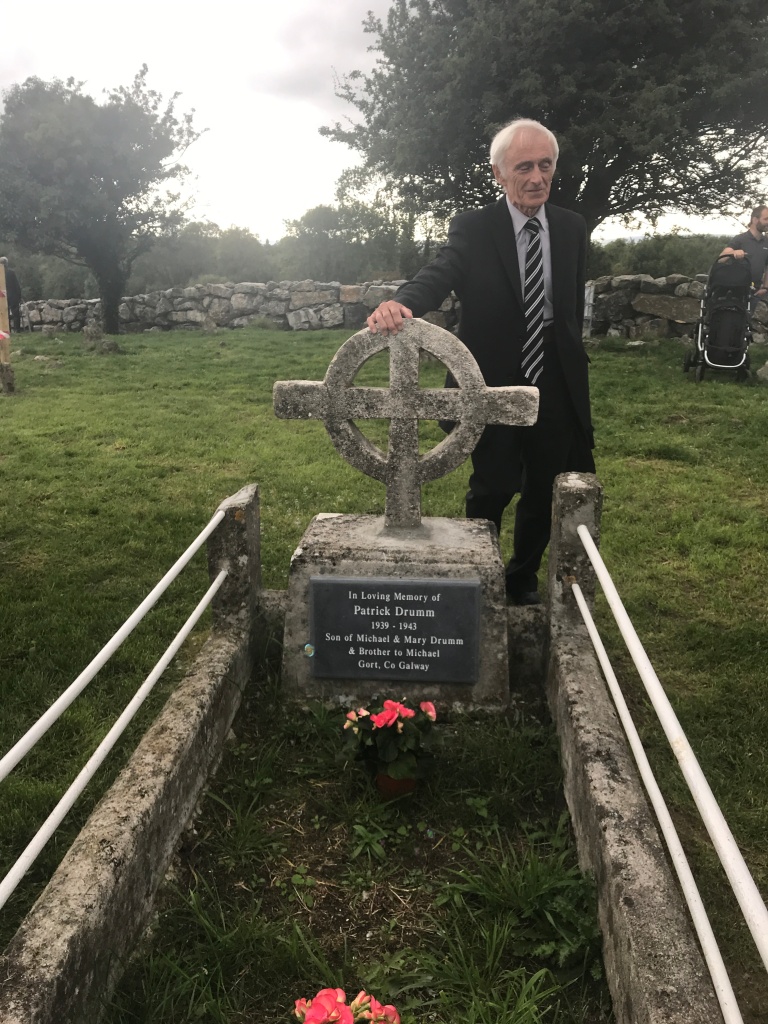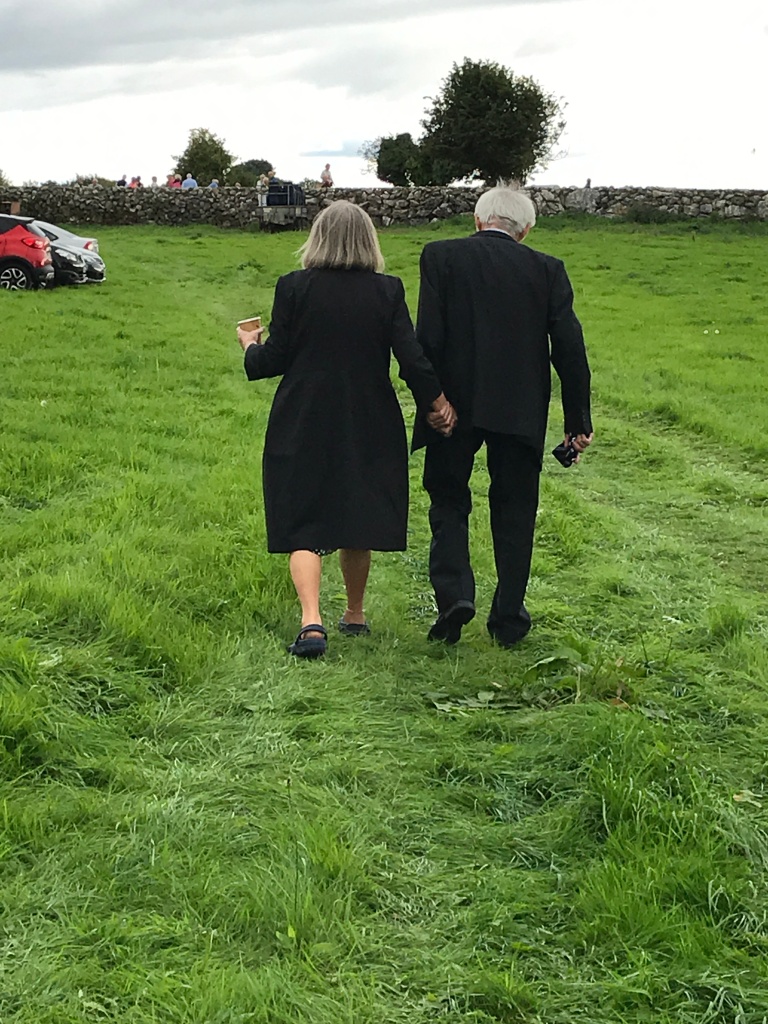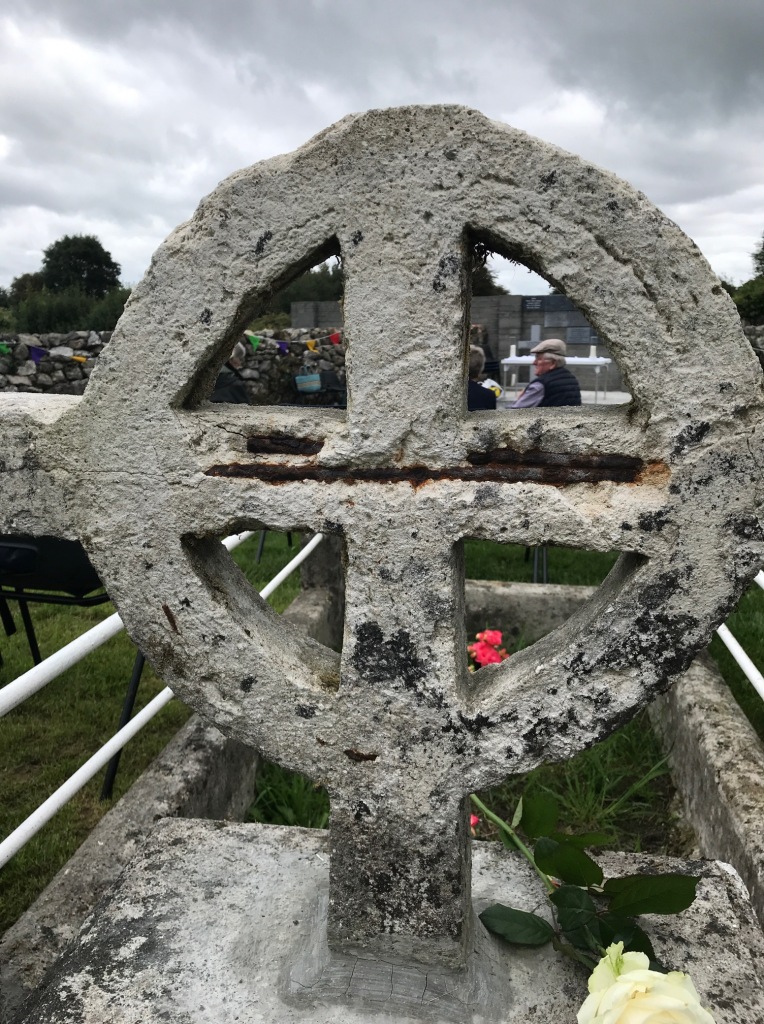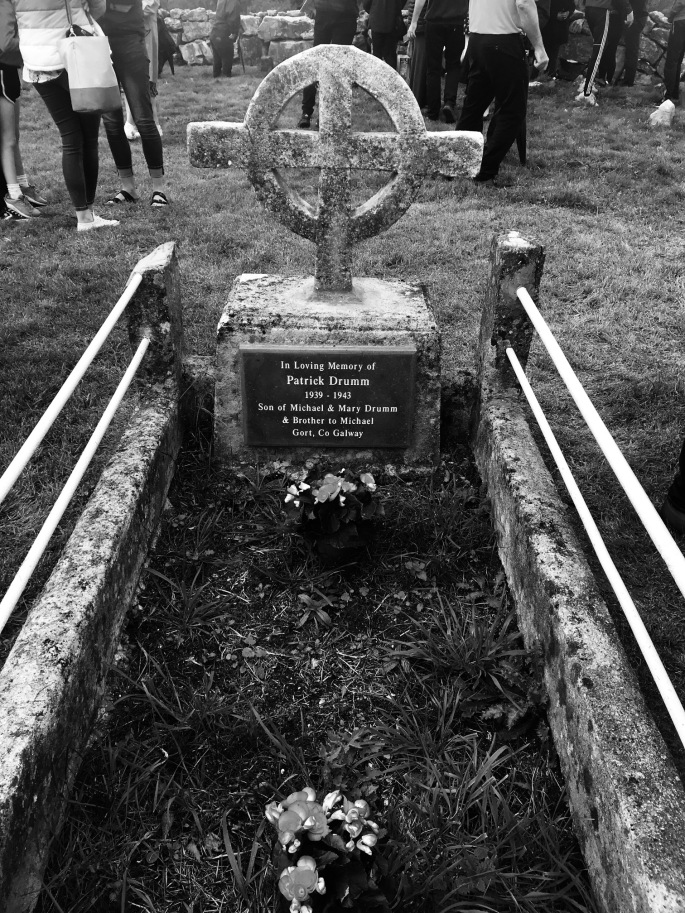Grief is the price we pay for love.
‘If you make me bread and jam, I will say thank you’, Paddy would say with a cheeky grin to the neighbours in their kitchens as he passed by and played with friends in Gort, Co Galway. It was 1943 and Paddy was four. He was the much-loved eldest son of my Grandmother Mary Elizabeth Drumm and my Grandfather Michael Drumm. He was big brother to my father, also Michael Drumm.
Paddy was a character. He was known around the whole of Gort. He was feisty and gorgeous and his adoring Mam always said you could tell he would grow up to be one of those ‘fine men of the world’. He would charm the bees and he charmed quite an amount of jam from the other mammies.
My grandparents lived simple lives. Grandad was in the army and my grandmother kept things together at home, collected eggs from her hens and sold them. Her own brown bread was legendary with two freshly baked round loaves made every other day.
Times were different back then and kids as young as three and four played safely on the streets of their town. It was their back yard. Nothing ever happened.
The accident happened in a split second. There was a builder’s yard and Paddy and his friends were always in and out for a look at the work. Paddy was standing where he shouldn’t have been when some of the load came off the truck as it was reversing into the yard. Paddy was hit by some of the blocks. His leg was badly injured. My grandparents took him to hospital where the leg was set in plaster.
My grandmother visited him every day he was in the hospital. She would cycle much of the journey and get lifts some of the way.
Paddy had been in hospital for less than a week when a message came through to say that he was a bit more poorly than he should be. He was so ill that when Gran arrived she was initially refused entry. I still feel proud of her today when I recall what she told us she said to them – that no one would keep her from her child!
The minute she saw her Paddy she knew he was dying. The doctor explained that there was sepsis. The plaster, while protecting the broken leg, had also disguised the gangrene that developed.
Paddy, aged four, died from his injuries in his mother’s arms on a Summer day in 1943.
A grief descended on the town.
‘Paddy, the Drumm boy’, people whispered.
‘Paddy, the bread and jam boy’, the other Mammies said as they shook their heads and held their own children close.
Paddy, the apple of the eye of the entire town.
Paddy, aged just four, was gone.
The day of the funeral came. My grandmother didn’t go. She couldn’t go. It was not unusual in those days for the men folk to take care of things like that. Paddy was taken in his small white coffin to a burial ground called Lavally Lisheen just outside Gort where many other infants were buried.
There was no inquest into the accident. No inquest into the medical care. But some months later, there was a quiet transfer request put into the army HQ and my grandparents left Gort with their infant son Michael. Staying where Paddy had died was just too much for them to bear.
They moved to the other side of the country and with no car, there was no weekly visit to the graveyard, no monthly visit. We never understood why. My grandmother spoke about Paddy all her life and we knew his story well from we were little. Even when we had our own cars and could have taken her, she never asked to go to see him.
And yet, his name was one of the last on her lips when she died in 2006. She told me she was going home to Paddy and to her husband Michael – it was a reunion she had longed for her whole life.
A phone call to my father in 2019 from Gort was a huge surprise. They had tracked him down through the local Garda Station in Ballyconnell, Co Cavan, from an old newspaper article with his name as Garda Mick Drumm.
The call was from a local historian to share the news that the local community of Gort had come together and had reclaimed the burial ground which had been overrun by thick brambles for decades. They wanted permission to refurbish Paddy’s grave and to repair the headstone which had bent over with time. They also wanted my father to be there for a special event in August.
A road trip was necessary and so my son Cathal, Mum and Dad and myself set off to Lavally Lisheen just outside Gort. The graveyard was down a long and winding track that could just about be classed as road. The graveyard itself was really just a hollow in the ground adjacent to a train track.
We reviewed the old grave – three generations of family seeing it for the first time. It was ornate and decorative with four pillars, metal bars almost fencing it in and a beautiful Celtic Cross. We agreed the work and said we would be back for the celebrations by the community later that Summer.
Two months later we were all back in the graveyard for the blessing and service. Paddy’s grave was the centrepiece of the day, beautifully restored. All the other graves were flat stones on the ground and some were names on beautiful marble and stone slabs secured on a new memorial wall. It was surreal to be back 76 years after Paddy was laid to rest there. After decades of no one visiting the graveyard was packed with the sounds of voices of all generations, and the laughter of children caught on the wind.
The son of the man who owned the yard where Paddy’s accident took place heard that we were in Gort. He asked if my father would go and see him. He did. The man said his family never really got over the accident and that his own father had taken the guilt to his grave. We finally solved the mystery of why Paddy had such an ornate grave – the man who owned the yard where the accident had happened built the finest memorial to Paddy that my Gran could never visit. There was healing in the conversation between my father and that man.
Back at Lavally Lisheen burial ground, there were prayers, music and poetry and the names of all of the children that were buried there were spoken aloud for the first time ever. There was tea and sandwiches provided by the townfolk. It was like a wake for Paddy and the other children.
As the crowds left and the sun started to set on Paddy’s grave, the Seamus Heaney Poem Mid Term Break came to mind, especially the lines:
“He lay in a four-foot box as in his cot.
No gaudy scars…..
A four-foot box, a foot for every year.”
Sleep well Paddy, the boy who never grew up. The uncle I never knew.
It takes a village to raise a child and it took a village of people, of family, to give you back your name.
ENDS



Word count: 1030

